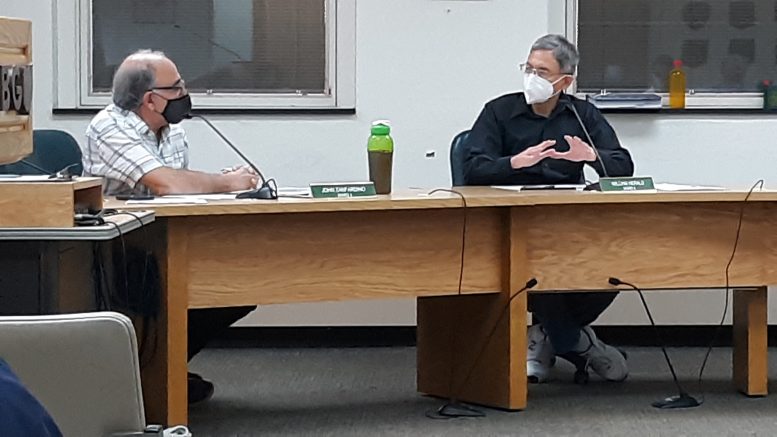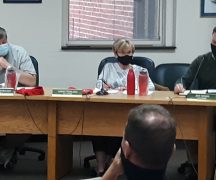By JAN LARSON McLAUGHLIN
BG Independent News
Registering rental housing was supposed to be the easy part of Bowling Green’s proposed rental housing ordinance. But even that section of the ordinance stirred up some controversy Monday evening.
During the Community Improvement Committee of City Council meeting, the three members had differing opinions on some provisions of the registration rules. They disagreed on:
- Whether or not religious organizations should be exempt?
- Whether or not someone renting out one bedroom in their home should be exempt?
- Whether or not the fee for failing to register rentals should be charged per unit?
A few landlords were in the audience Monday evening. They will be given a chance to speak on Thursday when a public meeting is held on the proposed rental registration, licensing and inspection ordinance. The meeting is set for 6 p.m., in the Veterans Building in City Park.
Over the decades, rental housing has inched its way up to an estimated 62% of Bowling Green’s housing. City Attorney Mike Marsh said Monday that the number of rental units in the city is close to 7,000.
Council members John Zandardino, Bill Herald and Jeff Dennis serve on the committee working on the ordinance. Last November, City Council agreed to split the process and take the least controversial step first for rental registrations.
Zanfardino suggested the “prudent” approach would be to adopt a registration process first, then tackle the licensing and inspections. Herald stressed that definitions of terms such as “landlord” and “bedroom” must be determined, but Dennis and Zanfardino favored defining the terms later and moving the registration portion forward.
Herald also suggested that the ordinance address “exemptions” to the rental registration. But Zanfardino objected.
“Why would we exempt anyone from simply registering a property?” he asked.
Herald said religious institutions are already exempt in Fair Housing legislation.
“I don’t want to go anywhere near trampling on freedom of religion,” Herald said.
But both Zanfardino and Dennis disagreed on the automatic exemption.
The proposal suggests that a simple one-page registration form must be filled out for each rental unit. So if a building has eight units, the landlord must fill out eight registrations.
“It was always our intention to get every one of them – so we know how many there are and where they are,” Marsh said.
Marsh said filling out the one-page forms should not be onerous – and noted that once registered the process is not repeated unless the property changes owners.
Anyone who fails to register their rental units can face a $250 citation each week for each dwelling not registered. Marsh said local landlords should not have difficulty completing the registration process.
The registration portion of the ordinance also requires:
- Each rental property owner must have a property manager if the owner doesn’t live within 35 minutes of Bowling Green.
- Landlords must register their properties within 30 days from the ordinance passing until the end of 2021.
- If there is a change in ownership, the city must be notified within 30 days.
The council committee voted unanimously to forward the registration section of the ordinance on to City Council.
For nearly 50 years, Bowling Green city leaders have tried to level the playing field for the three stakeholder groups in rental housing – the tenants, adjacent homeowners, and landlords.
The effort began again in earnest last year, with five public hearings held to gather input on a proposed rental housing registration, licensing and inspection plan. Tenants told of landlords not providing safe living conditions, and landlords defended their properties and resisted any type of inspections.
Then COVID hit and opportunities for more public input were put on hold.
Many communities in Ohio – especially college towns with large rental populations – already have registration, licensing and inspection programs in place.



